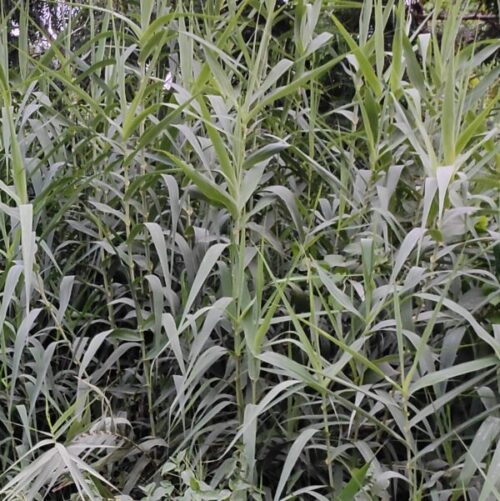1.Chlorophyll is the chemical compound of-
(1).iron (2).calcium
(3).phosphorus (4).magnesium
2. The source of oxygen which comes out during photosynthesis is –
(1).carbohydrate (2).glucose
(3).water (4).chlorophyll
3. The process of germination of seeds is catalysed by –
(1).water (2).enzyme
(3).chlorophyll (4).oxygen
4. The food synthesized in leaves during photosynthesis is transported to different parts of the body through-
(1).xylem (2).phloem
(3).stomata (4).cambium
5. Besides acting as food-factories of plants, leaves perform many different functions like –
(1).food storage (2).transportation
(3).reproduction (4).all of these
6. The leaves of a plant take part in asexual reproduction through buds. The name of the plant is –
(1).acacia (2).China rose
(3).bryophyllum (4).tradescantia
7. Which one of the following is not a function of root?
(1).absorption of nutrients (2).transpiration
(3).physical support (4).food storage
8. Stems function as plant’s principal plumbing system because they –
(1).prepare food (2).conduct water and nutrients
(3).storage of food (4).take part in reproduction
9. Seeds are –
(1).parts of fruit (2).parts of a flower
(3).parts of stem (4).parts of flower
10. Potato is –
(1).a leaf bud (2).root
(3).underground stem (3).fruit
11. Abscisic acid is responsible for –
(1).photosynthesis (2).transpiration
(3).conduction of water (4).leaf fall
12. Which one of the following is not a deciduous tree?
(1).Madhuka indica (2).Bauhinia
(3).Maple (4).Eucalyptus
13. Which statement describes compost properly?
(1).organic matter saturated with nutrients
(2).a soil conditioner
(3).a pesticide for soil
(4).it kills earthworms and increases soil fertility
14. Flowers have long been admired and used by human beings –
(1).to beautify the environment (2).an as object of romance
(3).object of religion (4).all of these
15. Plants with soft stems are called –
(1).herbs (2).shrubs
(3).trees (4).vegetables
16. The giant red wood tree is found in –
(1).America (2).Singapore
(3).India (4).Pakistan
17. Onion is –
(1).annual (2).perennial
(3).biennial (4).none of these
18. Which of the following is often supposed as invasive?
(1).ginger (2).canna
(3).Parthenium (4).orchid
19. Forests found near the equator are called as –
(1).temperate forests (2).tropical forests
(3).boreal forests (4).coniferous forests
20. Lush green vegetation characterised by consistently heavy rainfall and high temperatures between 18 to 20 degrees Celsius is known as –
(1).boreal forest (2).temperate forest
(3).tropical forest (4).grassland
21. A mix of both deciduous and coniferous trees, with one tree type typically dominant is called as –
(1).temperate forest (2).boreal forest
(3).tropical forest (4).Mediterranean forest
22. Forest fires are common in –
(1).boreal forests (2).tropical forests
(3).Mediterranean forest (4).temperate forests
23. The percentage of biodiversity found in forests across the globe account up to –
(1).60 (2).80
(3).75 (4).90
24. The number of people around the world dependent on forests for their livelihood is –
(1).1.6 billion (2).1.3 billion
(3).1.5 billion (4).1.75 billion
25. The law which empowers the government to declare any area to be a reserve forest, protected forest or village forest is –
(1).The Indian Forest Act, 1927
(2).Wildlife (Protection) Act, 1972
(3).Forest Rights Act, 2006
(4).none of these
26. The law which allows any area to be constituted as a “Protected Area” namely a National Park, Wildlife Sanctuary, Tiger Reserve, or a Community Conservation Area is –
(1).The Indian Forest Act, 1927
(2).Wildlife (Protection) Act, 1972
(3).Tribal Land Act, 2006
(4).none of these
27. Deemed Reserve Forest in Orissa account up to –
(1).82.9% (2).40%
(3).33% (4).67%
28. The percentage of the Earth’s land animals and plants that live in forests is –
(1).40% (2).67%
(3).70% (4).none of these
29. Practices of logging, urban development, and Land Conversion for agriculture contribute to an annual loss of over –
(1).130, 000 square km (2).30, 000 square km
(3).122, 000 square km (4).45, 000 square km
30. Stretches of habitat created to link isolated fragments of forests are called as –
(1).isolated areas (2).isolated forests
(3).forest corridors (4).forest roads
31. The Red Data Book has been prepared by –
(1).UNICEF (2).IUCN
(3).CITES (4).FAO
32. Village Forest Committees, Eco- development Committees, and Forest Protection Committees should be formed within a range of –
(1).10 km (2).20 km
(3).5 km (4).7 km
33. The National Forest Commission was constituted on –
(1).5th June 2003 (2).7th February 2003
(3).5th June 1990 (4).7th February 1980
34. The area of undisturbed sacred groves in India is about –
(1).100 square km (2).10, 000 square km
(3).100 square km (4).12000 square km
35. The Silent Valley was declared as a National Park in the year –
(1).1982 (2).1983
(3).1985 (4).1984
ANSWERS
1.(4), 2.(3), 3.(2), 4.(1)., 5.(4), 6.(3), 7.(2), 8.(2), 9.(3), 10.(1), 11.(4), 12.(4), 13.(4), 14.(4), 15.(1), 16.(1), 17.(3), 18.(3), 19.(2), 20.(3), 21.(1), 22.(3), 23.(2), 24.(1), 25.(1), 26.(2), 27.(2), 28.(3), 29.(1), 30.(3), 31.(2), 32.(3), 33.(2), 34.(1), 35.(2)




